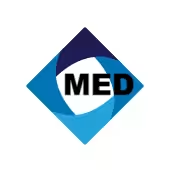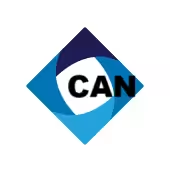

World's First Digital Twin Clinic Launches in Ginza, Japan, Fusing Blockchain and Alternative Medicine
World's First Digital Twin Clinic in Ginza
In an innovative leap for healthcare, Tokyo's Ginza district proudly hosts the world's first Digital Twin Clinic, integrating cutting-edge technology and alternative medicine into a cohesive treatment model. The clinic has officially opened, aiming to scientifically validate and document various alternative therapies to enhance the global understanding of medical practices.
The Digital Twin Clinic centers around two pivotal tokens that serve distinct yet complementary roles: CAN Token, a blockchain-based utility token managing everything from cultivation to medical application of hemp, and MED Token, which captures and verifies treatment data from patients undergoing alternative therapies. Both tokens provide a new ecosystem aimed at making healthcare more efficient, transparent, and accountable.
The CAN Token
The CAN Token (Cannabis Token) represents an expansive approach to the hemp industry, facilitating cultivation, processing, and therapeutic applications. This blockchain framework enables:
- - Visualization of cultivation efficiencies, allowing for targeted improvements based on real-time data.
- - Management of various processes associated with hemp through the ZWEI Chain, ensuring that everything from farm to pharmacy is well documented and traceable.
- - Linked Services direct the token's utility towards medical applications, including licensing for healthcare facilities and the distribution networks that get these products to patients.
The MED Token
On the other hand, the MED Token (Medical Token) is designed to compile treatment data particularly in alternative therapies. Patients voluntarily submit their data, which then securely registers on the blockchain, creating an immutable and scientifically valid statistical database. With this wealth of information, healthcare professionals can:
- - Compile data on various alternative treatments like carrot-apple juice therapy, massage, thermotherapy, and fasting regimes.
- - Analyze which profiles of patients benefited from specific therapies and under what circumstances, laying the groundwork for improved treatment methods.
The Impact on Healthcare
As Dr. Hitoshi Sato, a leading researcher in pharmacokinetics and the President of the Japan Hemp Association, points out, the Digital Twin Clinic aims to marry blockchain technology with alternative medicine. Dr. Sato emphasizes the importance of documenting previously anecdotal alternative therapies to create a stronger evidence base for their efficacy.
In addition to serving local patients, the clinic also opens its doors to international visitors, offering pre-consultation services and facility tours through the metaverse. This innovative approach aims to establish a welcoming environment for inbound patients, easing their transition into the Japanese healthcare system.
Furthermore, organizations like ZWEISPACE and Good Hills are pivotal in leveraging blockchain technology and AI to transform how healthcare is delivered in Japan. The introduction of the Digital Twin Clinic is not just a localized initiative but part of a broader strategy to incorporate advanced technologies into various industries, including healthcare.
Future Prospects
As this pioneering clinic takes its initial steps, the integration of blockchain, AI, and alternative therapies signals a shift towards a more comprehensive healthcare model. The ongoing collaboration between experts and technological leaders underscores a commitment to merging traditional medical knowledge with modern, scientifically validated approaches.
In the words of Hayato Kameta, a certified international investment analyst, the advent of transparent methodologies may usher in a new era for medical science where every treatment decision is backed by data. Thus, the Digital Twin Clinic is more than just a healthcare facility; it's a harbinger of what could come next in global health advancements.
The establishment of this clinic marks a paradigm shift in how we view and apply alternative medicine, blending it seamlessly within the evolving landscape of healthcare technology. By creating an ecosystem that prioritizes evidence and patient outcomes, the Digital Twin Clinic sets a blueprint for future healthcare innovations.



Topics Health)










【About Using Articles】
You can freely use the title and article content by linking to the page where the article is posted.
※ Images cannot be used.
【About Links】
Links are free to use.